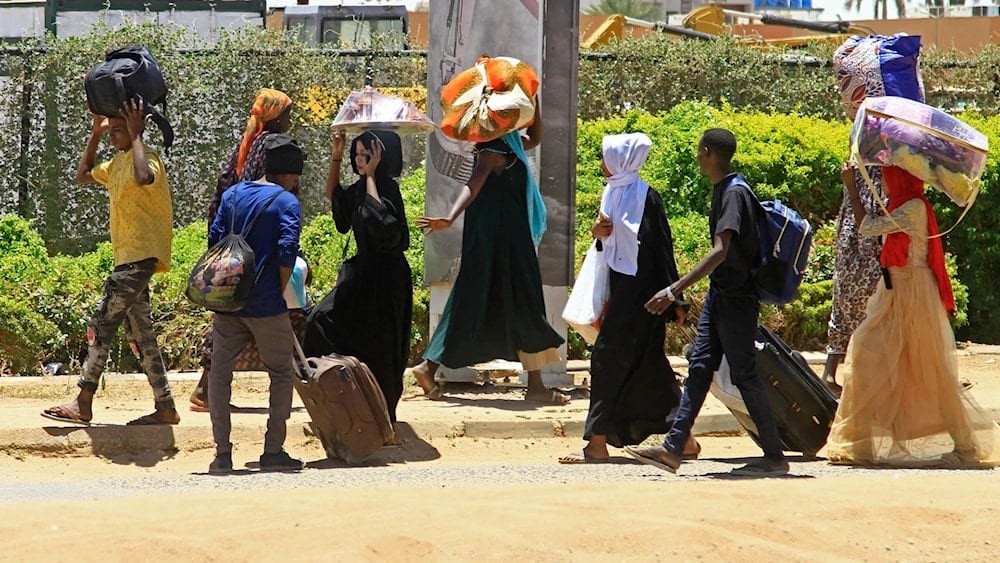Over two-thirds of displaced families in east Sudan short of food: NGO
The Norwegian Refugee Council (NRC) reported on Friday that over two-thirds of displaced families in eastern Sudan cannot access enough food, as the war has pushed millions toward famine.
-

People flee the fighting in the Sudanese capital Khartoum on April 18, 2023. (AFP)
The number of displaced people in eastern Sudan has significantly increased, especially since mid-year, when the paramilitary Rapid Support Forces (RSF) escalated their attacks in al-Jazira state, south of Khartoum, amid the conflict with Sudan's army.
Gedaref state alone now hosts over one million displaced individuals, according to United Nations data.
For nearly 20 months, the army, led by Abdel Fattah al-Burhan, has been engaged in a violent conflict with Mohamed Hamdan Daglo's RSF.
The war has resulted in tens of thousands of deaths and displaced more than 11 million people, both within Sudan and in neighboring countries, according to UN figures.
In October, United Nations experts accused the factions of using "starvation tactics" against 25 million civilians.
The Norwegian Refugee Council (NRC) warned that the needs of both displaced people and host communities in the region far exceed the current humanitarian response capacity, which cannot meet the demand without urgent intervention.
Read next: 25.6 million people threatened by acute food insecurity in Sudan: IPC
A survey of over 8,600 households across six eastern Sudan states found that 70% of internally displaced families and 56% of host families are unable to afford enough food, mainly due to skyrocketing prices and loss of income.
The report also indicated that 92% of host families and 76% of internally displaced people have not received any food assistance in the past six months.
According to NRC Sudan Country Director Will Carter, the towns and cities in eastern Sudan were already vulnerable, and the ongoing conflict has pushed them to the brink, with both displaced and host communities "on the verge of collapse."
Healthcare services are also severely overstretched.
The NRC is calling for immediate global action to increase humanitarian aid, restore critical infrastructure, and invest in livelihoods to prevent further destabilization.
Carter stressed, "The world must stand with all people affected by this terrible war."

 2 Min Read
2 Min Read








